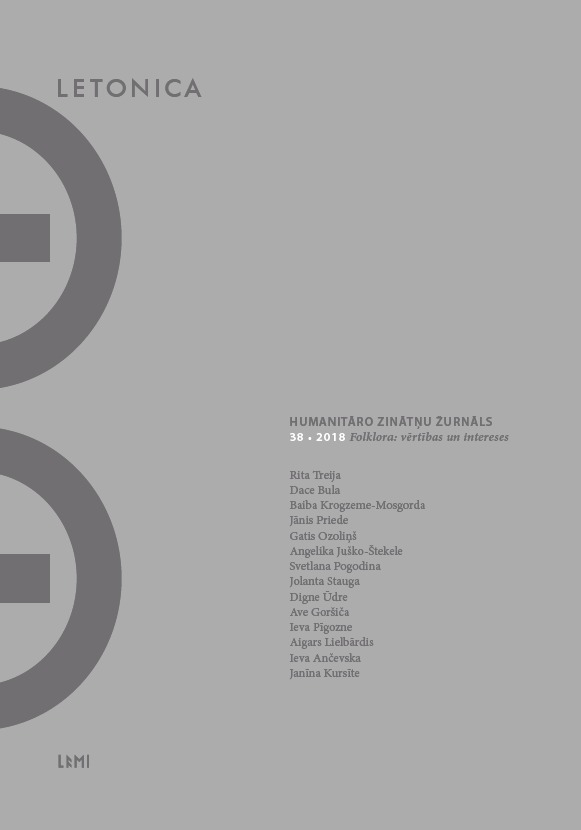Latviešu kalendārs un kristietības ietekme
Latvian Calendar and the Impact of Christianity
Author(s): Aigars LielbārdisSubject(s): Christian Theology and Religion, Cultural history, Customs / Folklore, Cultural Anthropology / Ethnology, History of Religion
Published by: Latvijas Universitātes Literatūras, folkloras un mākslas institūts
Keywords: calendar customs; Christianity; folk religion; early Catholicism; the cult of saints; Protestantism
Summary/Abstract: The presence of Christian culture in Latvian traditions is often concealed, bypassed, or juxtaposed to the mode of life and spirituality of ancient Latvians. On a very few occasions it has been considered and accepted as an integral part of Latvian identity. The content of the celebrations of annual customs, their belonging and suitability to Latvian culture have been addressed not only as a range of practical issues – what and how something should be celebrated, but also as a tool of creating and maintaining Latvian identity at various times. In the meantime, the quests for cultural originality, as well as pure forms and content of traditions have not ceased. Often they deny the long-term presence and impact of Christian culture to folk religion, language, music, traditions, etc. The author follows up the most important publications in Latvian folklore studies, where the traditions related to the agrarian year and holidays have been named and evaluated, as well as where the impact of Christianity has been examined in Latvian calendar customs from a historical perspective. When examining the presence of Christian culture in the traditional Latvian calendar, three stages can be distinguished: 1) the impact of early Catholicism (the days of Catholic saints, apostles and martyrs included in the calendar and the traditions related to them), 2) the impact of Protestantism (denial of traditions founded by Catholicism and the cult of saints, however their preservation in the calendar and related customs), 3) adaptation of celebrations from other nations in Latvia (St. Patrick’s Day, St. Valentine’s Day, Halloween). The names of weekdays and months, as well as origins of certain church-related terms have been referred to the oldest Slavic borrowings (church, cross, baptize, fasting, sin, week, candle, etc.). It is related to the previous impact of Orthodox Church in certain regions, that is, before the early Catholicism. Thus, it can be suggested that Latvian calendar as an accurate system of time calculation and partly also terminology was borrowed together with Christianity, which was followed by the impact of Western catholic traditions – paying homage to the saint martyrs and guardians on certain days.
Journal: Letonica
- Issue Year: 2018
- Issue No: 38
- Page Range: 177-188
- Page Count: 12
- Language: Latvian

